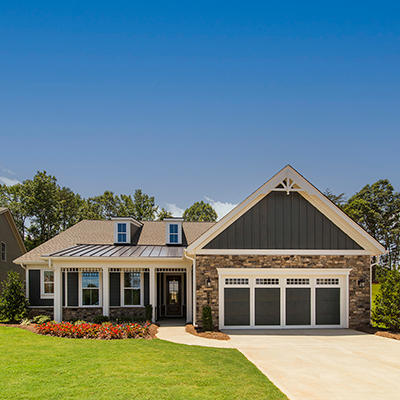North Carolina Retirement Guide
If you have been looking for the best places to retire in North Carolina this website has the helpful answers you need. Choose from dozens of North Carolina towns and communities that are popular with active adults 55+. For each community – from Asheville to Winston-Salem – you will find helpful community reviews. Don’t miss our dueling retirement article and all of the comments to it: “What is the Best State for Retirement: SC or NC“? Updated May 2018.
Asheville North Carolina Scenery

Overall
North Carolina is one of the top states for retirement and active adult retirement communities. This fast growing state of almost 10.3 million people (2017) has a median age of 37.8, and 14.7% of the population is 65 or over. The State offers plenty of outdoor activities, hundreds of best places to retire – from livable cities to quaint harbor towns like Beaufort, and small towns in the mountains like Hendersonville. The Blue Ridge Mountains in the western part of the state offer unparalled scenery and recreation. Many new residents are so called “halfbacks” – people from the Northeast who moved to Florida only to become disallusioned, who then move half-way back north to the Carolinas. In a 2010 poll North and South Carolina became the most popular places to retire among baby boomers, beating out the traditional leaders, Arizona and Florida. Read this article to find out “How North Carolina Overtook Florida as #1 Retirement State”. Here are more basic facts about what it’s like to retire in North Carolina.
A downside for a North Carolina retirement is that it is one of the most politically divided states in the country. The State House is controlled by conservatives and the governor is a Democrat. The big cities and college towns tend to be very liberal and everywhere else very conservative.
Best retirement communities
North Carolina offer a combination of coastal beaches, Piedmont cities, and western mountains – so it is sure to have a retirement community for just about everyone. Here is a partial list of best retirement towns reviewed at Topretirements (see full list in right column):
- Asheville
- Southport
- Lexington
- Brevard
- Mountain towns like Franklin, Cashiers and Highlands, Mount Airy
- Greenville
- Murphy
- New Bern
- Mount Airy
- Pinehurst
- Chapel Hill/Raleigh-Durham
Climate
The North Carolina climate is characterized as humid sub-tropical. Winters are mild and summers are hot and humid. Climate in the western mountains is a bit cooler.
Per Capita Income and Economy
In 2016 North Carolina inflation adjusted household income was $48,256, near the bottom third of all states. Real estate and the general cost of living is slightly below average compared to the total U.S. (MERIC Index cost of living is 20th lowest of the states. The Zillow Home Value Index in the state in late 2018 was $171,500, although its figure is lower than that reported by the NAR. Real estate values in North Carolina were not hit as hard during the 2008-9 recession as many other states, and have also come back. Durham/Chapel Hill’s median home selling price in early 2018 was $267,700; in Charlotte it was $226,400, and in Raleigh it was $274,300 (per National Association of Realtors – NAR). Manufacturing, services, and agriculture are important in North Carolina.
Taxes
Tax Burden: At 9.8% the North Carolina state and local tax burden is 20th highest in the country (The Tax Foundation). Tax reform passed in the summer of 2013 improved the state’s tax friendly status.
Marginal Income Tax Rates. North Carolina’s top marginal income tax rate was reduced to a flat 5.499% in 2017. There is a $8750 exemption per person. This page has info on NC and other income tax rates for 2016.
Retirement Income Exemptions. There are new limitations on deductions for property tax and mortgage interest. Taxation of retirement income was changed effective with 2014 year. At a minimum public pensions are probably exempt up to $4000 per year, and private pension payments $2000. Under the Bailey decision public pension income from NC and federal entities is generally exempt. If you had five years of creditable service as of August 12, 1989 then your military pension income is exempt – otherwise the exemption is $4000. If you have big IRA, 401k, or pension payments you will probably be taxed on most of them in NC.
Social security exemption. Social security benefits are deductible for NC taxation as long as you included them in your federal adjusted gross income. See this page on Social Security exemption from NC.
Sales Tax: Sales tax is 4.75%, but almost every county adds at least 2% to that.
Property Taxes: Property tax burden is well below average. NC is ranked 39th highest. Per capita property tax paid in 2013 was $903.
Homestead Exemption. There is a $25,000 property tax homestead exemption for people over 65 who meet certain income criteria. Even better is a circuit breaker program for eligible people over 65 which limits your property taxes to 4 or 5%, depending on your income.
Estate and/or Inheritance Taxes. North Carolina does not have an inheritance tax or estate tax, the latter of which was phased out for deaths after the beginning of 2013.
Link to the North Carolina Department of Revenue
Certified Retirement Communities
North Carolina recently started a certified retirement community program through the N.C. Department of Commerce. Lumberton, Asheboro, and Mt. Airy are the first 3 cities to be officially certified. See Retire in NC
Get started exploring North Carolina now – use the handy links on the right.




